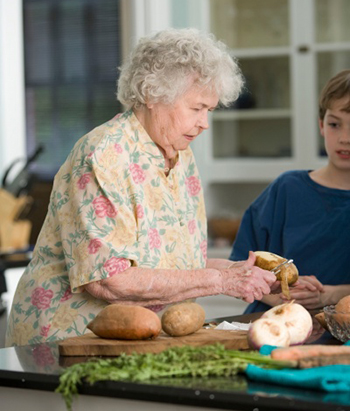
What is unique about Duke OTD Fieldwork?
Fieldwork at Duke has several distinctive features:
- Every course has active application experiences to prepare students for formal fieldwork experiences.
- Formal fieldwork experiences are intentionally and tightly integrated with coursework.
- Level I Fieldwork involves a unique blend of coursework, simulation, engagement with practice and community settings;
- Level I and II Fieldwork objectives derive from the program’s vision, mission, and the following Key Knowledge Domains:
- Occupation as a mechanism of health
- The occupational therapy process
- Access, opportunity, and belonging
- Innovation and everyday leadership
- Formation for service
- Creating, translating, and assembling knowledge
- Learning and change
- Approximately 500 hours of Fieldwork engagement during the didactic portion of the curriculum.
- Fieldwork performance is assessed on the basis of Duke OTD program outcomes
- Extensive support to enhance therapists’ role as a fieldwork educator.
Duke Level I Fieldwork Experiences
Duke's Level I Fieldwork Experiences help students transfer knowledge and learning to real-world situations. To achieve this aim, Duke uses an innovative approach. At the end of each semester, students engage in an immersive simulation experience followed immediately by a matching immersive practice experience. Both simulation and practice experiences require students to address occupational needs and disruptions at an individual, community, population, or organizational level.
Duke Level II Fieldwork Experiences
The Duke Level II experience is also designed to closely adhere to the Duke OTD program outcomes. Sites are selected because their services support a wide range of individuals, populations, and communities through the application of meaningful occupations. They may also provide students with additional experiences in occupation-focused research, administration, management teaching and learning, and program development.
Working with Duke students may offer you and your site a re-fresh in contemporary occupation-based practice, in the reasons and resources for why occupational engagement is a mechanism for the health and well-being of your clients.
Becoming a Duke Fieldwork Educator can enhance your own professional development in the educator role. Duke faculty will serve as resources for building fieldwork experiences that reflect education principles, such as backward instructional design in the practice setting, subject-centered integrative learning, and learning assessment.
As a Duke fieldwork educator, your expertise moves up a level. In addition to impacting individual clients or groups of clients, you will impact students who will then go on to impact many clients, expanding your influence on people’s lives exponentially.
Educating students in fieldwork is also recognized by NBCOT, NCBOT, and many additional state regulatory boards as a mode for achieving continuing competency requirements for OT and OTA practitioners.
Sites benefit from taking fieldwork students as a means of recruitment of occupational therapy practitioners. Site staff have an opportunity for an in-depth view of a student’s potential as a future employee.
If you work with Duke OTD fieldwork students, you will add value to your organization. Duke OTD students will be trained in how to demonstrate the value of occupational therapy to the organizations in which they work.
The Duke OTD program strives to form students as authentic, ethical, and compassionate leaders who collaboratively enable people’s access to and participation in meaningful, health-supporting occupations - the utmost concern of occupational therapy practitioners.
The academic fieldwork coordinator (AFWC) is an essential collaborator in fieldwork education and is part of the team in the fieldwork educator/student relationship. The AFWC will provide you with fieldwork tools and resources to support you through your journey as a fieldwork educator and will communicate with you frequently to address any needs, concerns, or questions you may have regarding fieldwork education or the student.
Duke fieldwork educators will need to meet the generic qualifications outlined by ACOTE. There are also preferred qualifications specific to Duke. Level I fieldwork educators do not need to be occupational therapists. They may be currently licensed occupational therapists and occupational therapy assistants, psychologists, physicians, physician assistants, teachers, social workers, nurses, physical therapists, and speech language pathologists, or other professionals. The Level I fieldwork educator must be knowledgeable about the goals and objectives of the Duke OTD Level I Fieldwork Experience and how their setting can support meeting those goals.
ACOTE requires qualified fieldwork educators for Level II Fieldwork to be currently licensed occupational therapists who have a minimum of 1 year full-time of practice experience in traditional settings or at least 3 years of full-time of professional experience in settings where no OT services exist.
If you are interested in partnering with Duke OTD and becoming a fieldwork educator, please get in touch with the Academic Fieldwork Coordinator, Jannylle Pitter, at OTD_Fieldwork@duke.edu or (919)-660-9826.